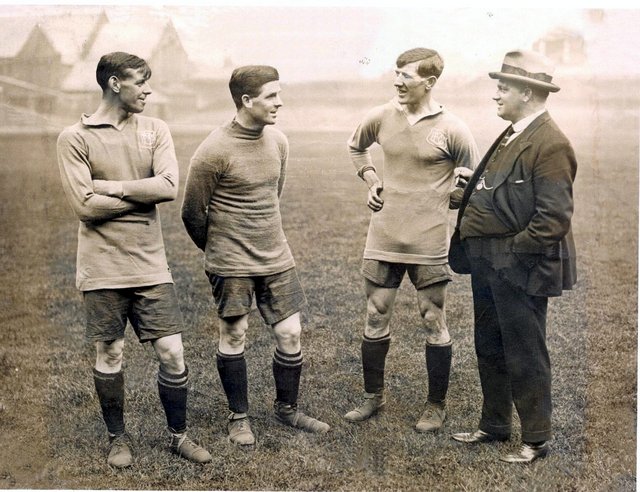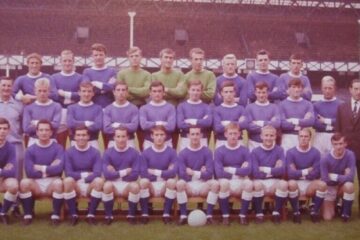
On 16 March 1925, after months of scouting, negotiation and gentle persuasion, Everton’s secretary-manager Tom McIntosh concluded the most important transfer deal in the Club’s history.
For £3,000, William Ralph (‘Dixie’) Dean arrived from Tranmere Rovers. Three years later, Dean’s record 60-goal tally propelled Everton back to the summit of English football.
Today, Dean resides amongst the football immortals, yet McIntosh, who served as Everton’s secretary-manager for 15 years, is little remembered. That is a shame, for as well as being a key figure in the signing of Dean, he helped the Club move from a state of post-War transition into a golden era.
Like several of the men who followed him into the Everton manager’s office – Harry Catterick, Gordon Lee and Howard Kendall
McIntosh was a North-Easterner, born in Sedgefield in 1879. A teenage player with Darlington in the 1890s, he reverted to the role of club secretary in 1902. Nine years later he became Middlesbrough secretary-manager and under his charge they finished third in Division One in 1913/14 – the highest position in the club’s history.
His move to Everton came in December 1919. Everton were in a state of flux after the First World War had disrupted their 1915 title-winning side. While never wholly responsible for team selection or transfers, he was a key influence on the directors and ran the club on a day- to-day basis.
During this period Everton lifted the League Championship in 1927/28 and 1931/32, the FA Cup in 1933 and the Second Division Championship in 1930/31. There was also the aberration of relegation in 1930.
A kind, patient, articulate man his ‘system of management,’ wrote the Everton historian, Thomas Keates, in 1928, ‘seems to approach the ideal.’

The Blues’ secretary-manager was a key figure at the Club
‘He was someone you looked up to and respected,’ recalled Dean. ‘When I was made captain we used to have many a chat about this and that and you never had any trouble talking to Tom. He’d always listen and he’d try to do what was best for all concerned.’
McIntosh battled cancer and on 29 October 1935, the disease took his life aged 56. ‘He was a great man and when he passed away I was very upset,’ recalled Dean.
At the following Saturday’s match, Goodison stood in silence to pay their respects to one of their great servants. ‘An impressive two minutes’ reported the Football Echo. ‘The players lined up and the crowd stood bareheaded as a token of respect.’




